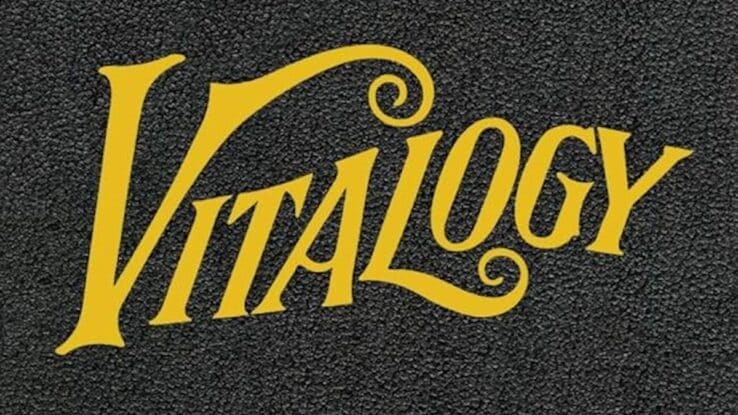Music

Looking Back
Everything has chains: Pearl Jam’s Vitalogy at 30
We look back at how Pearl Jam regained control with their uncompromising third album
Pearl Jam’s three “eras” form an unevenly distributed Neapolitan ice cream: zeitgeist-defining megastars and monolithic rock lifers either side of oddball fugitives from fame. Eras one and two are boldly flavoured slivers, the latter is an oversized slab of strawberry that extends into infinity.
The most interesting of the three isn’t the one that placed Pearl Jam on a collision course with Nirvana for the title of Seattle’s most important band. It’s what happened immediately after. The double whammy of Ten and Vs brought overwhelming popularity but also introduced artificially constructed feuds, designer recreations of Eddie’s clothes and unhealthy levels of idolatry. Pearl Jam didn’t seem comfortable with any of it.
Eddie Vedder’s instant reaction was to reject the whole thing and steer towards calmer seas, even if the ensuing journey scuttled the ship. That desperate revulsion runs through every inch of Vitalogy, ripping up the blueprint and rebuilding the band into weirder, more interesting shapes. In the process, almost by accident, Pearl Jam made their best album.

The stage wasn’t necessarily set for greatness. Stone Gossard, long the band’s diplomatic centre of calm, was considering quitting, while a tormented Vedder had become the de facto leader. Mike McCready was dealing with addiction. Drummer Dave Abbruzzese had fallen out with Vedder and didn’t even make it to the end of the sessions before being replaced with Jack Irons. Bassist Jeff Ament went on the record, saying, “Communication was at an all-time low.” Producer Brendan O’Brien put it more bluntly, “There was some imploding going on.”
Not that Vitalogy was the first or last great album to be born in turmoil. It’s an album at war with expectation, with fame, at times even with itself, and it’s all the better for it. The plan mostly comes across as “no plan”, Pearl Jam throwing ideas at the wall and taking everything, even the ones that just left a strange residue on the paintwork before sliding to the floor. You almost feel for the A&R guys who nodded along politely to ‘Bugs’ while already mentally packing up their desks.
Yet, within Vitalogy’s reputation for extreme weirdness is a crucial contradiction. These are some of Pearl Jam’s catchiest songs, honed into lean, direct weapons by Brendan O’Brien’s production. They stand in stark contrast to Ten’s muddy beasts, particularly the breathless punk energy of the opening trio: ‘Last Exit’, ‘Spin The Black Circle’ and ‘Not For You’. Eddie’s voice is a cathartic howl instead of the wounded mumbling that launched a thousand Creeds, and the band doesn’t so much stomp as run full pelt towards the objects of their ire.
When Vitalogy eases off the throttle, the results are equally breath-taking. ‘Nothingman’ and ‘Better Man’ take lessons learned from the success of ‘Daughter’ and expand Vedder’s cannon of extraordinary stories about ordinary lives. Although Vedder wrote ‘Better Man’ before he even joined Pearl Jam, it’s impossible to imagine it fitting in anywhere else but Vitalogy. On the other hand, the brooding ‘Immortality’ would have felt at home on the band’s previous albums or even albums to come.
Not that any of the above refutes Vitalogy’s weirdness. It’s not like the band suddenly transformed into Captain Beefheart, but they still indulge odder impulses that would clearly have been repressed on previous albums. Eddie Vedder morphs into Tom Waits as he wails about infestation over a demented accordion on ‘Bugs’ – the delivery of “I don’t think they’re that dumb” might be his best ever – while the unsettling sonic experiment of ‘Hey Foxymophandlemomma, That’s Me’ uses audio from a 1986 documentary to comment on America’s dire record with mental health. The mantra-like ‘Aye Davanita’ teases a spiritual direction Pearl Jam would explore further on the second half of this era, 1996’s No Code.
Sitting apart from the adrenaline, ballads and oddities is the album’s centrepiece and Pearl Jam’s best song (a hill we’re prepared to die on): the majestic ‘Corduroy’. We recently compared its motorised eclecticism to Fleetwood Mac’s ‘The Chain’ – particularly how its bass-driven breakdown leads towards the inevitable explosion – but even more impressive is how perfectly it captures everything that drove the band towards Vitalogy. “I would rather starve than eat your bread,” Eddie sings in defiance, “All the things that others want for me / Can’t buy what I want because it’s free.”
By the end, he’s made peace with the idea that this could be the album that trashes everything: “I figure I’ll be damned / All alone, like I began.” That to-hell-with-it attitude allowed Pearl Jam to become their best selves, to construct a cocoon and rebuild the band into an entity strong enough to survive for another 30 years. And probably a lot longer.
Pearl Jam’s Dark Matter UK tour comes to the UK and Ireland in June. Get tickets here









